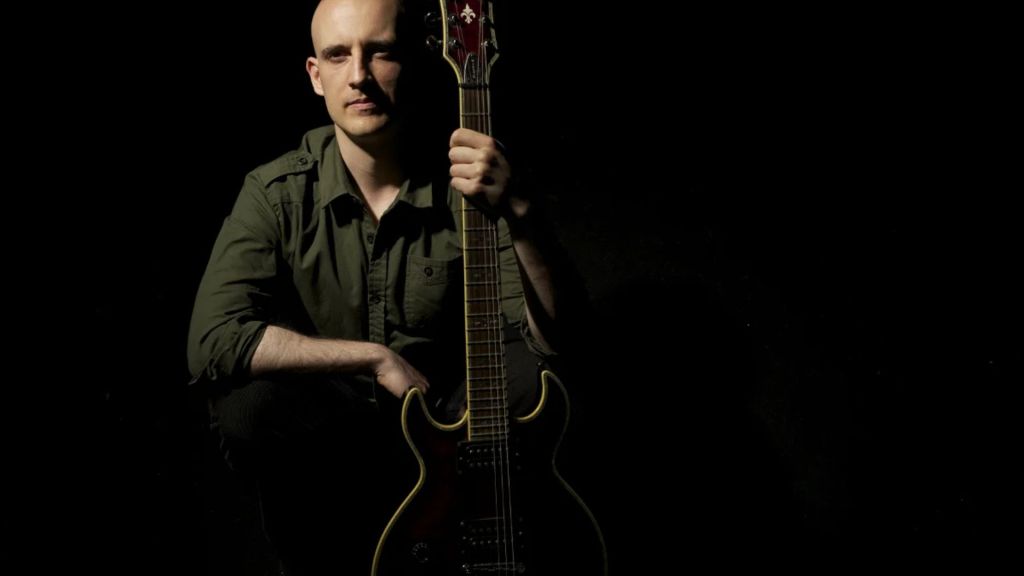Robert Woo

Sian McMullen has been working professionally as an audio engineer since the age of thirteen and has produced music with Atlantic Records, Spotify, Interscope, as well as artists like John Mayer, Isaiah Rashad, and !llmind. Sian’s passion for music comes through during her interview, and shows why she is such an excellent expert to connect with for music mixing advice via PIVODIO. Check out Sian’s full profile for more.
It’s always great to see young artists in the industry making their living off of their passion. Tell us about being a full-time audio engineer.
This has been my only source of income for the last six or seven years now. I’m grateful and I’ve worked really hard, but it has been stressful. So the first thing I’d say to the PIVODIO audience is to be prepared to live in a lot of financial insecurity, to be completely real. It’s amazing to be able to make a living doing music, but it comes with ups and downs because it can be very inconsistent.
Do you remember the moment when you decided to take the plunge into doing this full time?
I started working at Atlantic and – no knock to the label or studio – they weren’t able to pay the engineers well at the time. So I had a second job as a janitor. So I’m living in San Diego and commuting to North Hollywood to take sessions, but on Monday and Friday nights I’m committed to cleaning office buildings.
At the same time, I started working with !llmind and met his manager. In the span of a month and a half, I got flown out to NY twice. So it was difficult to juggle both the janitor job and working with them. I had to dedicate everything. That’s when I quit and that janitor job was the last job I had that wasn’t related to music.
That must have been scary to leave a steady paycheck.
Scary but totally worth it. I have no regrets.
What do you think got you to a professional level?
In my experience in LA specifically, the way to get around is your relationships. Who you know will get you in the door, but what you know will keep you in the room. I give so much credit to !llmind. It was unpaid at first, he just tweeted out looking for an unpaid engineer. And I sent him an email and it worked out. He said anytime he’s in LA, he wants to work with me.
So then I’m getting tagged in pictures with him and other artists and producers. That cosign, when he would shout me out, he was so gracious with his compliments about me; it’s been very, very important. But I also have the skills to back it up.
Relationships are really important, but you have to be able to back it up.
True. But so many musicians have the skills to back it up – just not that other thing that helps them break through. And for you, it was understanding how to be good in the room and have relationships.
A big part of engineering and being in a studio is social awareness and social skills. And customer service is basically the core of my job as an engineer, because I have to make sure everyone is happy. Fortunately for me, I’ve worked in restaurants serving people. When I started, I wasn’t great at it. I remember getting feedback and was told I was awkward and nervous with customers, but I learned from that experience.
And artists are sensitive. Creatives are sensitive. Music is meant to be made with other people, so knowing how to read the room, knowing when or when not to speak up, knowing when to recognize that someone is in the zone, you need to know when your opinion is warranted or not. Especially considering the stature of the people in the room at the time.
I give all credit to my days working as a 14, 15 year old because now I feel very confident in any social situation. Now you could drop me in a room with strangers and I’ll make at least one friend. Because no matter how talented you are, if people don’t want to be in a room with you for 6, 8, 12 hours, they’re not going to invite you to the session.
Let’s talk more about the business side. When you’re coming up, how do you know how much to charge? So many musicians coming up struggle with that.
I think it’s about the demand. Myself included, I think a lot of people preemptively charge higher than they should because of the artists they might have worked with. “I worked with this person so my price went up.” But really, you can’t actually upcharge until there’s a demand for it. If you have a ton of work, you should raise your prices to weed out the people who aren’t willing to meet it, but it all depends on the demand.
Also, there are clients that I have worked with for a long time that I haven’t really raised my prices on – that’s just how I work – so I grandfather some of my clients into a lower price. But I also let them know that if and when my schedule fills up, they will have to meet my price or they might be lower on my priorities.
Do you think in your industry, there are people charging too much?
I think in engineering, there are a lot of glorified “engineers” that just press record and don’t contribute to the creative process. Then they work with someone dope and they start increasing their rates. I think when you change your rates up, there has to be a reason you’re making that change. There really has to be a demand.
I could mix the number one song right now, and sure, I’d get followers and likes, but how much of that turns into paying clients? Is that really enough to make me raise my rates? I’m not sure.
How much time do you spend on your craft, and how much time do you spend on the business side of things?
Especially when COVID hit, I was a lot more on my self-branding thing. But I’ve recently been reinspired creatively for the first time in a while. So right now, I’m 75% craft and 25% branding. At this point in my career I’m fortunate to have very consistent clients. I do lessons and consultations. I’m able to make income in different ways – not to say I’m just sitting here content – but I haven’t felt this way about music in two years so I’m really inspired right now.
What reinspired you?
It wasn’t the first time, and I’m sure it won’t be the last. This time, I joined a collective called “Hard Drive” and they invited me to engineer one of their writing camps and write. I think because engineers are looked at as an extension of the computer, our value doesn’t get as appreciated. But that community got to see how much I’m doing and appreciate it, and they told me that. They hired me because they want me to vocal produce, help the writers; they don’t just want me because I’m good at the technical stuff. So I really felt appreciated and valued, and I had the freedom to not be put in just the engineer box. That’s been refreshing for me.
I’m also really focused right now making stuff for sync placements which has been really fun because it helps me get back into producing and writing, creating freely. I have full control for the most part.
And in general, when I feel down about the music business in the past, having mentors is really important. Both in and outside of your industry, like your family. Having somebody whose opinion you value, who doesn’t B.S. you, it’s important. Because they can tell you it’s going to be ok but also be real with you, that’s super important. And people in your field probably have been there before and they can offer their experience.
And that’s exactly why PIVODIO exists. Everyone needs collaboration and mentorship sometimes, even if they are polished musicians. Let’s talk about competition. The price of equipment has come down, so more people are doing it. Sometimes all you need is a laptop. So how can people stand out in your industry?
Being authentic and being yourself is always the way to go, but just knowing how to talk and being a cool person is all you really need to stand out. Like I said before, they won’t hire you if they don’t want to hang out with you for twelve hours.
Everyone I know who is successful in this has two things in common: one, they’re persistent. They don’t give up. And two, they are just good, cool people. People I would invite around my family. People I could hit up if I need something. People I would choose to hang out with. It’s a common quality of the people I see having success in this industry.
Let’s hit you with a few quick ones. What song reminds you of your childhood, what comes to mind?
The whole Rock Steady album by No Doubt.
Most romantic song in the world?
It’s gotta be a Selena song. It has to be “Dreaming of You.”
What’s a song you can listen to a thousand times and never get sick of it?
Probably a John Bellion song, “The Good in Me.”
What song brings you back to a very important time in your life?
The Taylor Allderdice mixtape by Wiz Khalifa. It just takes me back to my end of high school years when I’m trying to figure out my next step and thinking about audio engineering school. I love that album.
For more of Sian McMullen, check out her Instagram (@conductorsian) and connect with her on PIVODIO for advice on mixing and music engineering.
About the Author:
Robert Woo has been in marketing for 15+ years, creating content for tech startups in various industries. He’s also written and performed comedy for decades, with stints at Nickelodeon, NBC, HBO, and more. While he is probably the least musically inclined of the PIVODIO team, he is excited to be part of this note-worthy (pun) company. He also takes a multivitamin every day.




Leave a comment